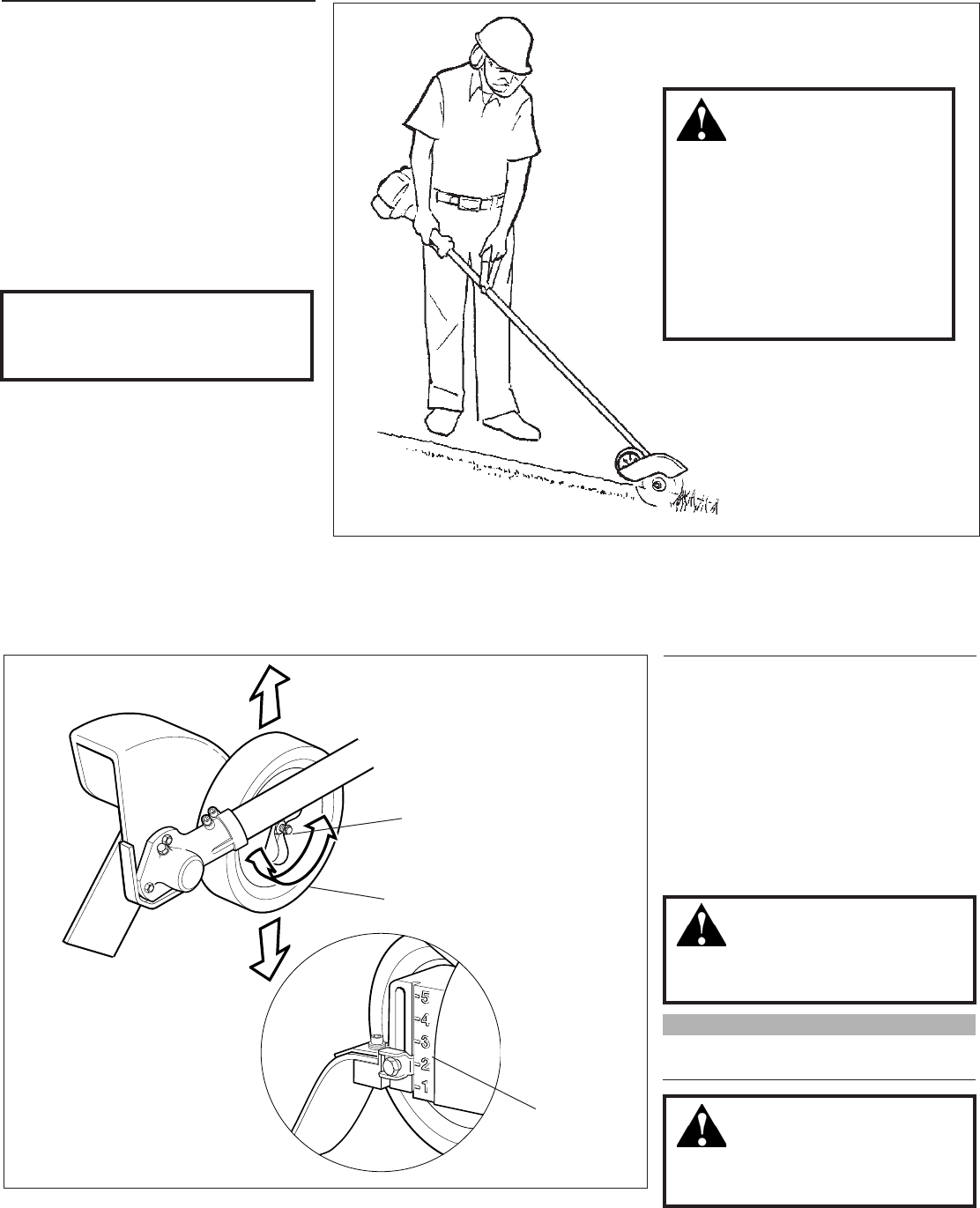
10
Using a Hand-held Edger
Do not move the edger into the work so
fast that the engine or blade bogs down.
Do not pull the unit backward over the
ground with the engine running. Doing
so will tend to bury the blade.
Regular and frequent use of the edger
will make a neater lawn, and a frequently
trimmed edge will be easier to maintain.
Before edging, make sure the area is soft
enough so the blade does not bog down. If
necessary, water the area before edging.
Remove debris and other obstacles that
could be thrown by the rotating blade.
Plan your work so the edger blade is
always on your right-hand side.
Begin each pass by positioning the unit
over the work, and with the engine run-
ning at about half-throttle. Slowly lower
the blade to the ground while applying
full throttle. See Figure 16.
Guidelines for Operating the Edger
Figure 16
WARNING!
Wear eye protection, long pants, and
boots when operating this machine
!
Whenever you strike a hard
object with the blade, always stop
the edger and carefully inspect
the blade for damage. NEVER
OPERATE THE EDGER WITH A
DAMAGED BLADE!
CAUTION!
Low-speed edging can lead to premature
clutch failure.
26021
The edger’s depth of cut is controlled by a
combination of operator height, blade wear,
and the positioning of the edger’s guide wheel.
To adjust blade height:
1. Loosen the guide wheel adjusting knob.
See Figure 17.
2. Raise or lower the guide wheel to the
desired setting. See Figure 17a.
3. Tighten the guide wheel adjusting knob
firmly. See Figure 17.
Adjusting the Blade
Guide Wheel
Adjusting knob
The numbers are for
reference only; they do
NOT refer to depth in
inches
Figure17
Figure 17a
Guide Wheel
WARNING!
Never adjust the guide wheel while the
engine is running.
WARNING!
Use only Shindaiwa replacement
edger blades.
NOTE
Guide wheel adjustment is also required to
compensate for blade wear.


















